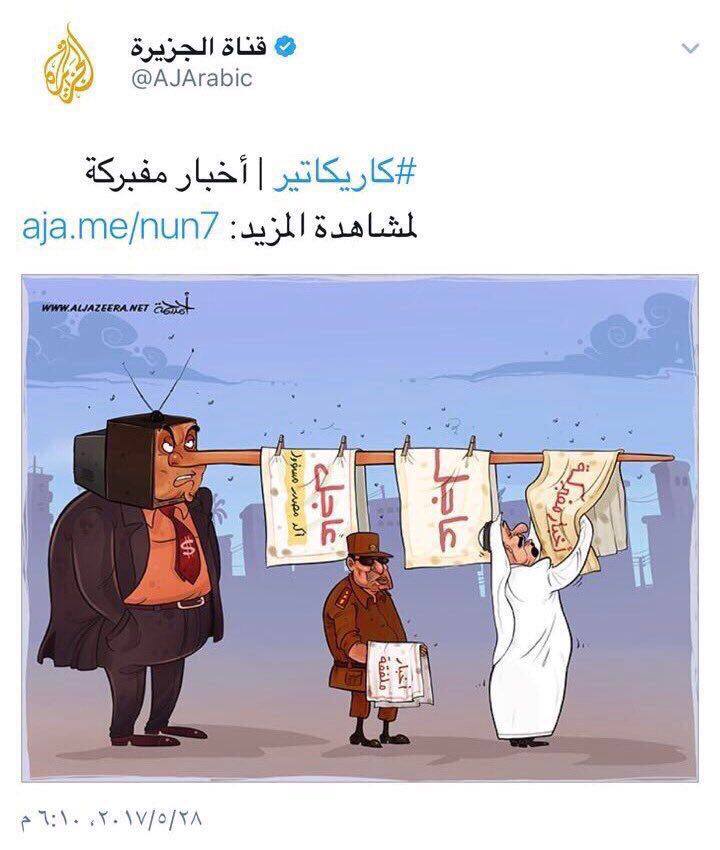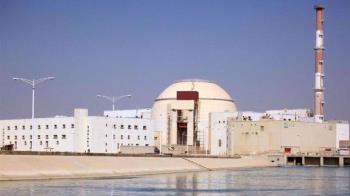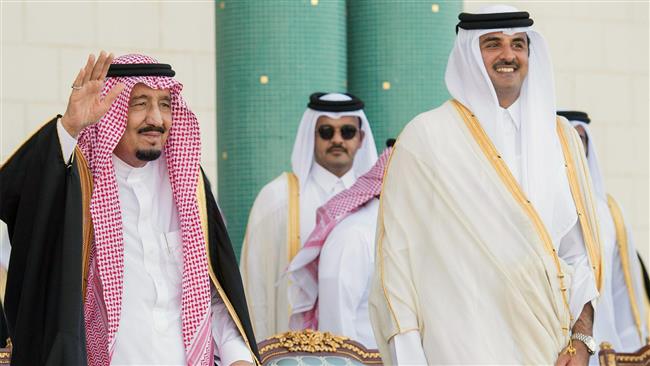Saudi Wahhabis Disown Qatar Emir over His Pro-Resistance Remarks
Alwaght- Descendants of the founder of Saudi -based Wahhabism have disowned Qatar's ruling family as tensions heightens between the two Persian Gulf neighbors.
Wahhabism, Saudi Arabia's dominant faith for more than two centuries, is an austere form of Islam that insists on a literal interpretation of the Koran.
According to Saudi Arabia's Okaz newspaper, 200 descendants of Ibn Abd al-Wahhab have denied in a statement claims that the 18th-century cleric was the Qatari emir's great grandfather.
The statement has not mentioned the Qatari emir by name but has referred to his construction of a mosque named after Ibn Abd al-Wahhab, demanding that Qatar rename the mosque.
Qatar's state mosque, opened in 2011, is known as the Sheikh Mohammed ibn Abd al-Wahhab mosque.
"We, therefore, demand that the name of the mosque be changed for it does not carry its true Salafi path," the statement added.
The radical ideology of Wahhabism is freely preached by in Saudi Arabia by regime-backed clerics, inspiring terrorists worldwide. ISIS and other Takfiri terror groups such as Al-Qaeda, Taliban, and Boko Haram use the ideology to declare people of other faiths as “infidels” and then kill them.
The development comes in the wake of escalating tensions between Riyadh and Doha since Qatar’s state-run news agency released comments attributed to Emir Sheikh Tamim bin Hamad Al Thani on sensitive issues last week.
Qatari News Agency (QNA) cited the Arab country's king as saying that A Saudi Arabia is fueling tensions with Iran.
In the statement posted website of QNA Qatar’s emir hailed Iran, Saudi Arbia's main rival in theregion, saying "Qatar Has established strong ties with Iran and the United States, as Iran is an Islamic and regional power that cannot be ignored. It is not wise to collaborate against Iran because it is a big power and guarantor of peace in region."
QNA report published on Wednesday also said Sheikh Tamim spoke favorably about the Lebanese organization Hezbollah and the Palestinian group Hamas.
He was also cited as questioning US President Donald Trump's hostility towards Tehran, speaking of “tensions” between Doha and Washington, praising Hamas resistance movement as “the legitimate representative of the Palestinian people," and threatening to withdraw ambassadors from a range of West Asian Arab countries.
The Qatari government communications office was quick to claim that hackers had broken into the QNA website and published the fake news. However, the Qatari state television’s nightly newscast had showed clips of the monarch at an official military ceremony with a scrolling ticker at the bottom of the screen showing the same remarks.
Afterwards, Saudi Arabia and the United Arab Emirates blocked access to the Qatari media, including Al Jazeera, and Egypt accused the international news channel of "inciting terrorism" and "fabricating news."
Qatari Foreign Minister Mohammed bin Abdulrahman Al Thani then said his country was being targeted in a “hostile media campaign."
A row between Qatar and other Persian Gulf Arab States deepened yesterday after the Doha-based Al Jazeera channel posted a cartoon denigrating the Saudi king on its official Twitter feed.

The tweet set off a storm of condemnation on Twitter, and the cartoon was eventually removed by the network.
Persian Gulf countries led by Saudi Arabia broke ties with Qatar over its backing of then-Egyptian President Mohammed Morsi, a Muslim Brotherhood member. In March 2014, Saudi Arabia, the United Arab Emirates and Bahrain recalled their ambassadors from Qatar over the row. Eight months later, they returned their ambassadors after Qatar forced some Brotherhood members to leave the country and quieted others.
Analysts believe the swift Saudi-Emirati response even before consulting Doha to get official confirmation, implies that there is deep mistrust among the Persian Gulf Sheikhdoms and the Riyadh Summit was just a pretense of unity.



























